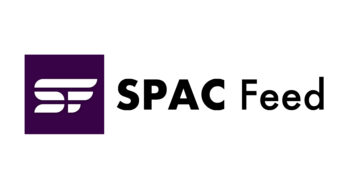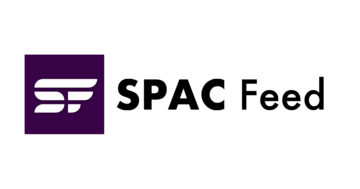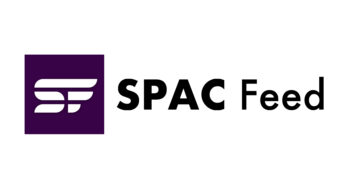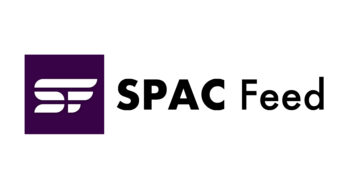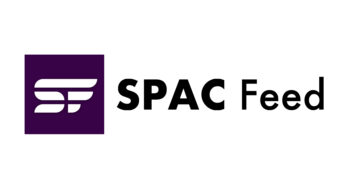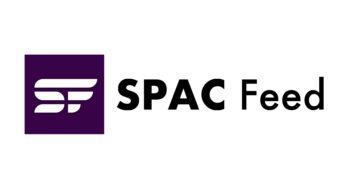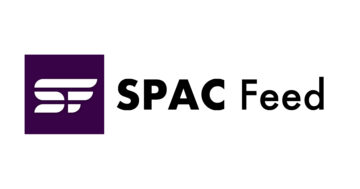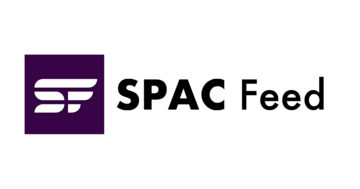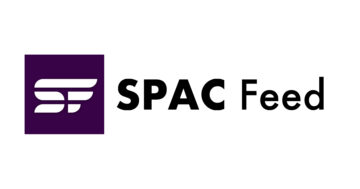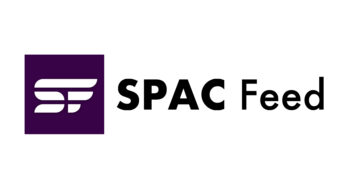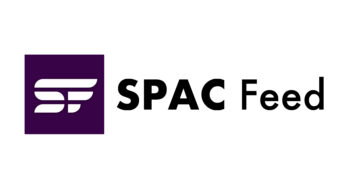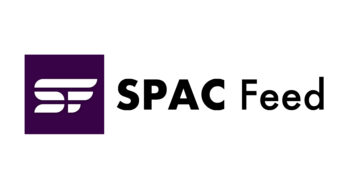

Happy Sunday Friends,
Recently, wall street dealmaker Michael Klein announced plans to take UK investment firm CorpAcq public through a SPAC merger. CorpAcq owns a variety of businesses, including a plumbing business, a diesel generator specialist, and a forklift truck supplier. This deal, valuing the Cheshire-based company at $1.6 billion, highlights the lengths to which SPAC sponsors like Klein to secure transactions in the current landscape.
This is a marked departure from the high-profile mega deals that Churchill SPACs have made in the past, such as the $11 billion merger with healthcare services firm MultiPlan and the $40 billion merger with Luxury EV Maker lucid motors in 2020 and 2021. Despite the lack of fanfare compared to previous Churchill SPACs, can CompAcq thrive? Let’s take a look.
Mastering the Art of Strategic Acquisition
CorpAcq, founded in 2006 by Simon Orange, specializes in acquiring small and medium-sized businesses led by their founders. The group has successfully expanded its portfolio to 41 companies across diverse sectors, including industrials, infrastructure, transport, chemicals, and consumer goods. Churchill SPAC dealmakers believe CorpAcq’s ability to acquire businesses at lower prices stems from founders’ reluctance to sell to private equity firms.
The company employs a low-risk strategy to acquire stable and profitable founder-led SMEs with solid operating track records; on average, the acquired companies are at least 30 years old. This strategy ensures alignment with founder-sellers post-acquisition, thereby driving growth.
CorpAcq then looks to boost organic growth through cross-selling opportunities across its portfolio. For example, Carrylift, DGP, Gray, Hessle, and GM Leitch share marketing tools and engineering to win national contracts by offering coverage across the UK.
Moreover, acquisitions can leverage CorpAcq’s resources, such as back office support and recommended best practices, to improve their performance and professionalize their services. One success story that displays this is Hessle, which, with CorpAcq’s assistance, introduced an industrial fork truck division in 2012. This division now contributes approximately 19% of revenues and has contributed to around 100% subsidiary profit growth over 10 years.
Want to Find the Best De-SPACs? Try Benzinga
(Offer Expires 09-15-2023)
I use tons of trading software to help me better understand the market and make smarter trading decisions. One thing I love about Benzinga Pro is its versatility. It wasn’t built for just one type of trader but for a wide range of experienced investors like myself. I can create custom watchlists, and then quickly monitor the performance of my investments.
Some great news – Benzinga is giving all subspac readers a free two week trial!
Betting on the Future
Churchill VII, which went public in February 2021, has encountered difficulties with finding a high-quality merger target due to a slowing economy and the reputational risks associated with SPACs after the boom ended. While Churchill Capital Corp VII had engaged in talks with Indian ed-tech startup Byju’s in 2021 for a deal worth over $40 billion, Byju’s has since struggled.
Nevertheless, Churchill remains committed to the CorpAcq deal, forfeiting 15 million founder shares and unvesting 12.1 million shares to align with its shareholders and CorpAcq’s long-term value creation and performance.
However, there are concerns. The companies in CorpAcq’s portfolio, including casualwear makers Cotton Traders, have only grown revenue by 4% annually since 2018. Simon Orange’s focus on UK businesses, currently dealing with Brexit fallout and inflation shocks, may be unattractive to investors. CorpAcq’s unremarkable assets may struggle to gain traction with mainstream US stock market investors. The US listing of a highly UK-focused business highlights the challenges faced by the london stock market due to higher valuations available in New York, which may prove challenging in the current market.
Moreover, CorpAcq faces headwinds from the general macro environment, with the UK experiencing a slowdown, persistent inflation, and a cost-of-living crisis, which could impact business growth and profitability. However, the medium to long-term outlook for CorpAcq appears more positive. The company has a solid track record of acquisitions, is planning to expand its strategy to acquire larger targets and eventually expand into the US, and maintains a robust balance sheet.
Financials and Valuation
CompAcq posted revenues of $826 million and EBITDA of $129 million for 2022. The company is projecting revenues of $951 million and EBITDA of $152 million for 2023. This translates to a Compound Annual Growth Rate (CAGR) of 16% for revenues and 17% for EBITDA between 2018 and 2023. However, a closer examination reveals that excluding revenues and profits from acquisitions each year, CorpAcq has only generated organic revenue growth and EBITDA profitability growth of 4% and 7%, respectively. Additionally, the company’s revenues are highly concentrated, with ten subsidiaries accounting for over 60% of 2022 revenues.
On a positive note, the company’s balance sheet is relatively healthy, with just $268 million in net debt, implying around 1.8x leverage for 2023. This is not surprising, given that the average profitability of the 18 companies acquired over the last five years is $3.7 million. Acquisitions pay for themselves over 10-12 years, while revenues continue to grow consistently.
Upon deal completion, CorpAcq will have approximately $199 million in cash on its balance sheet, including $129 million from transaction proceeds. This will improve liquidity and financial flexibility, accelerate growth in its core UK market, and expand its pipeline of acquisition opportunities.
The deal values the group at only ten times its estimated 2023 EBITDA of $152 million. This represents a discount compared to US industrial groups like Emcor or European acquisition vehicles like Stockholm-listed Indutrade or Lifco. This seems like a much better deal for shareholders compared to other Churchill SPAC deals, which took companies with unproven track records public.
Bottom Line
Despite having an impressive portfolio of companies with a history of healthy, profitable organic growth, UK-based CompAcq has largely remained unnoticed. This might not necessarily be negative, given the historical overvaluation of companies and the typical selection of companies with little or no history of profitable growth by SPAC merger targets. Unlike other Churchill SPACs, which mostly relied on unrealistic future revenue projections, CorpAcq has a solid track record of growth and profitability.
The key question remains whether the company can maintain or even accelerate growth when the operating environment in its core UK market faces significant challenges due to inflation and a cost of living crisis. In the medium term, the company is well-positioned to capitalize on growth across Europe. With the potential expansion through larger acquisitions and entry into the US market, the company could indeed accelerate growth and profitability.
Only time will tell if it can operate outside its core competency, grow its diverse portfolio of companies, or if growth will eventually stall.
Source: Beyond the SPAC Hype
- SEO Powered Content & PR Distribution. Get Amplified Today.
- PlatoData.Network Vertical Generative Ai. Empower Yourself. Access Here.
- PlatoAiStream. Web3 Intelligence. Knowledge Amplified. Access Here.
- PlatoESG. Automotive / EVs, Carbon, CleanTech, Energy, Environment, Solar, Waste Management. Access Here.
- PlatoHealth. Biotech and Clinical Trials Intelligence. Access Here.
- ChartPrime. Elevate your Trading Game with ChartPrime. Access Here.
- BlockOffsets. Modernizing Environmental Offset Ownership. Access Here.
- Source: https://spacfeed.com/beyond-the-spac-hype
- :has
- :is
- :not
- $3
- 1
- 10
- 1100
- 12
- 15%
- 2006
- 2012
- 2018
- 2020
- 2021
- 2022
- 2023
- 220
- 30
- 7
- a
- ability
- About
- accelerate
- Accounting
- acquire
- acquired
- acquiring
- acquisition
- acquisitions
- across
- Additionally
- After
- align
- All
- an
- and
- announced
- annual
- Annually
- approximately
- ARE
- around
- Art
- AS
- Assets
- Assistance
- associated
- At
- available
- average
- back
- Balance
- Balance Sheet
- BE
- believe
- Benzinga
- BEST
- best practices
- Better
- between
- Beyond
- Billion
- boom
- boost
- Break
- Brexit
- built
- business
- businesses
- but
- button
- by
- CAGR
- CAN
- capital
- capitalize
- Capturing
- Cash
- challenges
- challenging
- chemicals
- closer
- committed
- Companies
- company
- compared
- completion
- Compound
- Concentrated
- Concerns
- consistently
- consumer
- continue
- contracts
- contributed
- contributes
- Core
- Corp
- Cost
- could
- coverage
- create
- creation
- crisis
- Current
- Currently
- custom
- deal
- dealing
- dealmakers
- Deals
- Debt
- decisions
- Despite
- diesel
- difficulties
- Discount
- displays
- diverse
- Division
- down
- driving
- due
- each
- EBITDA
- economy
- employs
- ended
- engaged
- Engineering
- ensures
- entry
- Environment
- equity
- estimated
- Ether (ETH)
- Europe
- European
- EV
- Even
- eventually
- examination
- example
- excluding
- Expand
- expanded
- expansion
- experienced
- experiencing
- faced
- faces
- fallout
- false
- February
- financial
- Find
- finding
- Firm
- firms
- five
- Flexibility
- Focus
- For
- fork
- Founded
- founder
- founder shares
- founders
- Free
- friends
- from
- future
- Gain
- General
- generated
- generator
- gif
- given
- Giving
- GM
- good
- goods
- gray
- great
- Group
- Group’s
- Grow
- grown
- Growth
- had
- Have
- having
- headwinds
- healthcare
- healthy
- help
- high-profile
- high-quality
- higher
- highlights
- highly
- historical
- history
- However
- HTTPS
- Hype
- i
- identify
- if
- image
- Impact
- impressive
- improve
- in
- Including
- indeed
- Indian
- industrial
- inflation
- Infrastructure
- into
- introduced
- investment
- Investments
- Investors
- IT
- ITS
- jpg
- just
- just one
- Key
- Lack
- landscape
- largely
- larger
- Last
- least
- Led
- let
- Leverage
- like
- Liquidity
- listing
- little
- living
- ll
- London
- long-term
- Long-term Outlook
- Look
- LOOKS
- love
- low-risk
- lower
- lucid
- Luxury
- Macro
- macro environment
- made
- Mainstream
- maintain
- maintains
- make
- maker
- Makers
- Making
- marked
- Market
- market share
- Marketing
- May..
- me
- medium
- Mega
- Merger
- Michael
- might
- million
- Monitor
- more
- mostly
- Motors
- much
- my
- National
- necessarily
- negative
- net
- New
- New York
- news
- no
- note
- now
- of
- offer
- offering
- Office
- Old
- on
- ONE
- only
- operate
- operate outside
- operating
- opportunities
- or
- Orange
- organic
- Organic Growth
- Other
- Outlook
- outside
- over
- owns
- past
- Pay
- performance
- pipeline
- planning
- plans
- plato
- Plato Data Intelligence
- PlatoData
- Plumbing
- portfolio
- positive
- posted
- Posts
- potential
- practices
- previous
- Prices
- primary
- private
- Private Equity
- Private Equity Firms
- Pro
- proceeds
- Profit
- profitability
- profitable
- profits
- projections
- Prove
- public
- question
- quickly
- range
- Rate
- readers
- recommended
- record
- records
- relatively
- reluctance
- remained
- remains
- represents
- Resources
- Reveals
- revenue
- revenue growth
- revenues
- risks
- robust
- s
- Sectors
- secure
- seems
- selection
- sell
- Services
- Share
- Shareholders
- Shares
- sheet
- significant
- Simon
- since
- Slowdown
- Slowing
- small
- smarter
- SMEs
- Software
- solid
- SPAC
- specialist
- specializes
- Sponsors
- stable
- startup
- stems
- stock
- stock market
- Story
- Strategic
- Strategy
- street
- Struggle
- subsidiary
- success
- success story
- Successfully
- such
- sunday
- supplier
- support
- surprising
- T
- TAG
- Take
- Talks
- Target
- targets
- tell
- ten
- term
- that
- The
- the UK
- their
- themselves
- then
- There.
- thereby
- thing
- this
- Thrive
- Through
- time
- times
- Title
- to
- tons
- took
- tools
- track
- track record
- traction
- trader
- Traders
- Trading
- transaction
- Transactions
- transport
- truck
- true
- try
- two
- type
- typical
- Uk
- understand
- unlike
- us
- US Stock Market
- use
- Valuations
- value
- value creation
- Values
- valuing
- variety
- Vehicles
- versatility
- Wall
- Wall Street
- wasn
- we
- week
- went
- when
- whether
- which
- while
- wide
- Wide range
- will
- win
- with
- worth
- year
- years
- york
- you
- zephyrnet




